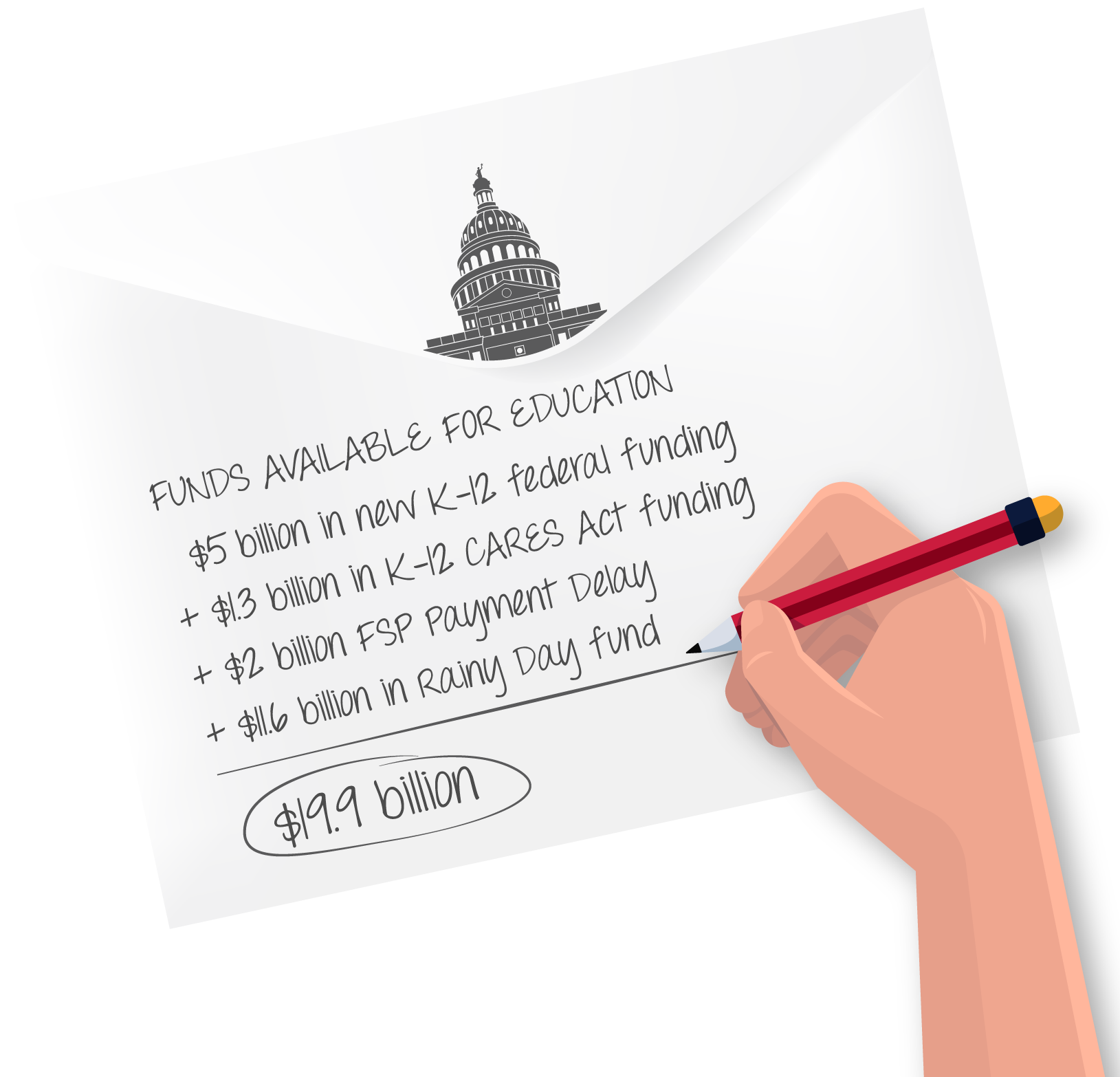
categories
There’s Enough Money to Fully Fund Public Education

January 12, 2021
Here’s some simple back-of-the-envelope math

Today, state lawmakers gaveled in the first day of the 87th Regular Session of the Texas Legislature. The multi-billion dollar question now before legislators: How much money does the State have to write its budget?
Monday’s biennial revenue estimate from State Comptroller Glenn Hegar offered a clearer picture of what lies ahead for public education and the entire state. Our back-of-the-envelope math details enough sources to fully fund public education, including all the advances made last session through House Bill 3.
The takeaway is the state is about $1 billion short in revenue in order to fund the current state budget. For the next state budget, lawmakers will have $112.53 billion in general fund revenue available compared to the $112.96 that was available for 2020-21.
This is less of a hit to our state budget outlook than anticipated. But lawmakers still need to make tough funding decisions to balance the books while also addressing the realities of population growth, COVID-19, and other long-term funding issues facing essential state programs.
Our state knows the painful and long-term consequences of severe budget cuts, especially to public education. In 2011, public education funding was cut by $5.4 billion. Those cuts rippled through schools for almost a decade until last session when the Legislature finally provided an additional $530 per student funding increase — a boost that allowed for teacher pay raises, full-day pre-Kindergarten programs, and numerous other initiatives that directly benefit our students and our state.
Even during this difficult budget cycle, the state has options to continue investing in and fully funding public education. These options can give our schools the ability to provide the services our students need and to effectively implement targeted interventions for learning loss that occurred over the last year due to COVID-19.
Here’s what needs to happen:
- Extend the enrollment decline hold-harmless now: Since the end of last year, we have advocated for the state to continue to hold schools harmless and fund them based on last year’s attendance data. We once again implore the Texas Education Agency to act now and extend the hold harmless so that schools can properly fund the current school year and plan for the next.
- Protect House Bill 3: We also ask the Legislature to make good on their promises of House Bill 3 and protect public education investments this legislative session, including full-day pre-Kindergarten.
- Use the Rainy Day Fund: The state’s Rainy Day Fund holds $11.6 billion for crises like this to help offset some revenue shortfalls and support the additional needs of our state.
- Flow federal dollars the right way: Texas will also receive over $5 billion in K-12 public education funding from the second round of federal stimulus. Schools did not get the benefit of the first round of CARES Act because the state chose to use it to fill other budget holes. The state decided to supplant $1.3 billion of state dollars with the federal aid — funding intended to specifically help schools address COVID-related needs and interventions. This time, schools should receive federal stimulus dollars on top of any state formula funding.
- Apply budget tools: Budget writers also can free-up $2 billion next biennium by delaying school payments by one month, if necessary. This will give the state more breathing room and would not adversely impact school services or programs.
As with the passage of House Bill 3 in 2019, our state lawmakers have the opportunity to advance and strengthen public education in our state. Many challenges face our state this session, but the actions our state leaders take now to support our schools will set us on the right path toward an even stronger future.



